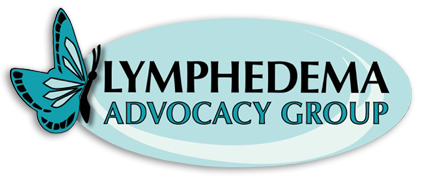In this month’s Advocate Spotlight below, Candace Bridegwater – a two-time breast cancer thriver and long-time advocate for the LTA – reflects on her many years of experience and shares tips on how to be an effective advocate.
We hope that reading her story inspires you to complete this month’s advocacy actions.
Even if your lymphedema is not related to breast cancer, October’s Breast Cancer Awareness Month is a great opportunity to raise awareness about lymphedema from all causes, and the importance of passing the Lymphedema Treatment Act. Thank you for your advocacy!
Heather Ferguson
Founder & Executive Director
Lymphedema Advocacy Group
LymphedemaTreatmentAct.org
|
|
LTA ADVOCATE SPOTLIGHT: Interview with Candace Bridegwater from Florida, Team Member since 2010.
ADVOCATE SPOTLIGHT:
Twenty-five years ago, Candace was diagnosed with secondary lymphedema of her right arm as a direct result of radiation treatment for breast cancer.
Outgoing, passionate, fearless, and inspirational describes Candace. She is a long-time advocate, former board member of the Lymphedema Advocacy Group, and previous Team Leader for Florida.
Candace has been active from the start of her diagnosis. She created a support group in her previous town and led it for many years. In the beginning, it was difficult to find treatment resources, “the first years were few and far between finding anyone at all.”
She went to her local hospital and asked “who should I talk with to try and get a lymphedema therapist at the hospital?” She was referred to the head physical therapist. They met, and she told her story. Together they went on a road trip to interview the closest lymphedema specialist in Florida. Upon returning, the head therapist assigned a staff member to be trained and to this day he is still providing lymphedema therapy. Candace’s message: “Anything can be done if you put your mind to it.”
After a meeting in Washington DC about lymphedema about 13 years ago, Candace met Heather Ferguson and joined the LTA. She immediately became very active with LTA. Her passion is helping, and mentoring advocates communicate with their congressmen and senators. “You have to understand lymphedema. You have to be willing to put yourself out there and explain what you need, what you want and how they can help you.”
The challenge comes when an office says “no”. You have to have your “elevator speech” ready. Understand that the health aide can is only one resource, and you need to look for other resources that can route your message. If you are near a local office, reach out and attend local meetings. Have something in your hand that the politician or local aide can take back with them. “Look them in the eye and tell them what you need”.
A valuable piece of advice Candace received was “remember they work for you and not the other way around” and found she was no longer intimidated by a congressman or senator.
When asked what surprised her as an advocate for the LTA, it was that the bill process takes a long time. If not passed in a congressional session, it must be reintroduced. At times discouraged by the delays, she owes both Heather Ferguson and Sarah Bramblette credit for their refusal to be discouraged. They have motivated Candace to continue her efforts.
One highlight of Candace’s advocacy efforts occurred on her way to Lobby Days. She noticed her congressman was on the same plane and used that opportunity to speak with him. She successfully got his agreement to sponsor! He in turn introduced her to another Florida congressman on the same flight, who then also agreed to cosponsor. She arrived at her hotel with two cosponsors and Lobby Days had yet to start! She immediately phoned their Health Legislative Aides (HLAs) to make sure they knew their bosses agreed to cosponsor, and to make sure they made it happen.
You have to take advantage of every opportunity!
Candace’s advice for success? Start small, learn your pattern, understand the bill, talk about your experience. Talk to everyone. Be comfortable with explaining why you are wearing compression and be willing to talk about it. It is just a conversation.
















